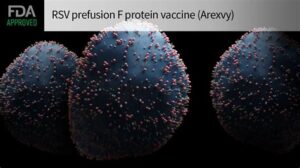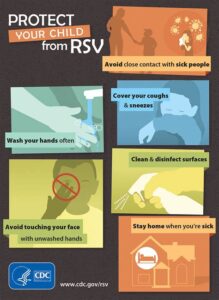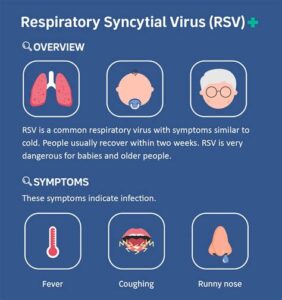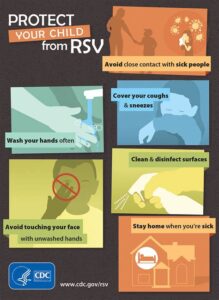Explore essential insights on RSV vaccination, including common side effects, rash management, and when to seek medical attention for optimal health.As respiratory syncytial virus (RSV) continues to pose a significant health risk, especially for infants and the elderly, the introduction of the RSV vaccine has offered a critical line of defense. While many may focus on its efficacy in preventing serious illness, it’s essential to understand the potential side effects that can accompany this vaccination. Among these, the appearance of a rash can cause concern for patients and caregivers alike. In this blog post, we will explore what the RSV vaccine entails, delve into its common side effects, and specifically address rashes that may occur post-vaccination. Additionally, we’ll provide guidance on managing any rashes effectively and highlight when it might be necessary to consult a healthcare professional. Understanding these aspects can help ease worries and ensure a smoother vaccination experience.
Understanding RSV Vaccine
The RSV vaccine is designed to protect individuals against Respiratory Syncytial Virus (RSV), a common virus that can lead to severe respiratory illnesses, especially in infants and older adults. RSV is known to be a leading cause of hospitalizations among children under the age of one. Because of its high prevalence and potential severity, researchers have worked diligently to develop an effective vaccine.
The vaccine works by stimulating the body’s immune system to recognize and combat the virus. Generally, immunity gained from the vaccine is vital in reducing the chances of severe respiratory complications that can arise from RSV, thus ensuring better health outcomes in vulnerable populations. It’s important to note that while the RSV vaccine significantly lowers infection risk, it may not eliminate the possibility entirely.
As with any medical intervention, understanding the RSV vaccine involves knowing both its benefits and potential side effects. From mild reactions like soreness at the injection site to more significant allergic reactions, it’s crucial for individuals to be informed. Given the importance of this vaccine in protecting against RSV, consultations with healthcare professionals can help clarify any concerns regarding its use.
Common Side Effects of RSV Vaccine
The administration of the RSV vaccine can lead to various side effects, similar to many other vaccines. Understanding these effects can help alleviate concerns and promote informed decision-making regarding vaccination.
- Pain at the injection site: Many patients experience mild to moderate discomfort where the vaccine was administered.
- Fatigue: A feeling of tiredness or lethargy is frequently reported.
- Headache: Some individuals may experience mild headaches following vaccination.
- Muscle aches: Generalized muscle pain may occur as a reaction to the vaccine.
- Fever: A slight increase in body temperature can be a common response, typically temporary.
Individuals should monitor their reactions closely after receiving the RSV vaccine. While most side effects are mild and resolve within a few days, it’s essential to understand what may be a normal reaction versus what could require further attention.
In addition to these common symptoms, some may experience more specific reactions that are worth noting. If you or someone you know is concerned about any symptoms, it’s best to contact a healthcare professional for guidance.
Always ensure that you are receiving information from trusted medical sources or your healthcare provider regarding the RSV vaccine and its potential side effects.
Rash as a Possible Reaction
The RSV vaccine is designed to protect individuals, particularly infants and young children, from the respiratory syncytial virus (RSV). However, like any vaccination, it can elicit certain reactions in some recipients. One noted reaction that may occur is a rash, which can manifest in various forms.
A rash following the RSV vaccine is often a mild and temporary side effect. These rashes can appear as red or blotchy patches, and they typically develop within a few days of receiving the vaccine. It is important to recognize that these rashes are usually not a cause for concern and may resolve on their own without any intervention.
In some cases, a rash may be indicative of a more significant allergic reaction. If a rash is accompanied by other symptoms such as difficulty breathing, hives, or swelling of the face and throat, it is essential to seek immediate medical attention. Monitoring for t
Managing Rashes Post-RSV Vaccination
After receiving the RSV vaccine, some individuals may experience a rash as part of their body’s immune response. It’s important to understand how to manage this side effect effectively to ensure a smooth recovery.
First and foremost, it’s recommended to keep the affected area clean and dry to minimize the risk of infection. Over-the-counter anti-itch creams or lotions can be beneficial in alleviating discomfort. If the rash is mild, it typically resolves on its own within a few days. However, keeping an eye on its progression is crucial.
In some cases, a rash may signify an allergic reaction. If you notice symptoms like swelling, blistering, or an extensive spread of the rash, it’s essential to consult a healthcare provider promptly. Always remember that while most side effects are harmless, your health should always take priority. It’s vital to be proactive about your well-being following any vaccination.
When to Seek Medical Attention
While most individuals experience minor side effects after receiving the RSV vaccine, there are instances when symptoms may require further assessment. Understanding when to seek medical attention is crucial for your health and peace of mind.
- Severe rash that spreads beyond the vaccine site or is accompanied by other symptoms.
- Difficulty breathing or wheezing, which could indicate a serious allergic reaction.
- Swelling or inflammation in the face, lips, or throat.
- Persistent fever that exceeds 101°F (38.3°C) and does not respond to over-the-counter medications.
- Confusion or difficulty staying awake, which may suggest a more severe reaction.
Always err on the side of caution; if you are ever in doubt about your reactions to the RSV vaccine, it is better to seek medical evaluation. Remember that timely intervention can lead to better outcomes.
Frequently Asked Questions
What is RSV and why is it important to vaccinate against it?
Respiratory Syncytial Virus (RSV) is a common virus that causes respiratory infections, particularly in infants and young children. Vaccination is important to prevent severe disease and complications associated with RSV infection.
What are the common side effects of the RSV vaccine?
Common side effects of the RSV vaccine may include mild symptoms such as soreness at the injection site, low-grade fever, irritability, and fatigue. Severe side effects are rare but can occur.
Can a rash develop from the RSV vaccine?
Yes, a rash can develop as a side effect of the RSV vaccine. It is usually mild and self-limiting, but persistent or severe rashes should be evaluated by a healthcare professional.
How can I manage a rash caused by the RSV vaccine?
Managing a rash from the RSV vaccine involves keeping the affected area clean and applying soothing lotions or antihistamines as recommended by a healthcare provider.
When should I seek medical attention for a rash after receiving the RSV vaccine?
You should seek medical attention if the rash is extensive, accompanied by fever, swelling, or difficulty breathing, or if it does not improve after a few days.
Is the RSV vaccine safe for everyone?
The RSV vaccine is generally safe; however, individuals with specific allergies or medical conditions should consult their healthcare provider before vaccination.
What other preventive measures can be taken against RSV besides vaccination?
Other preventive measures include practicing good hand hygiene, avoiding close contact with sick individuals, and ensuring proper cleaning of surfaces to minimize the spread of the virus.





